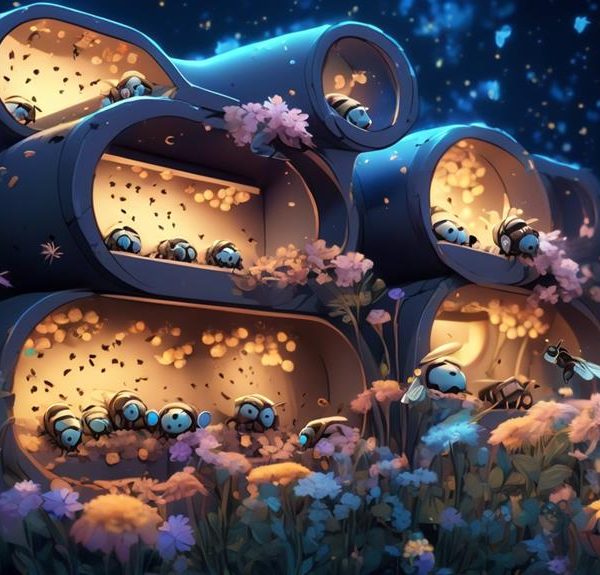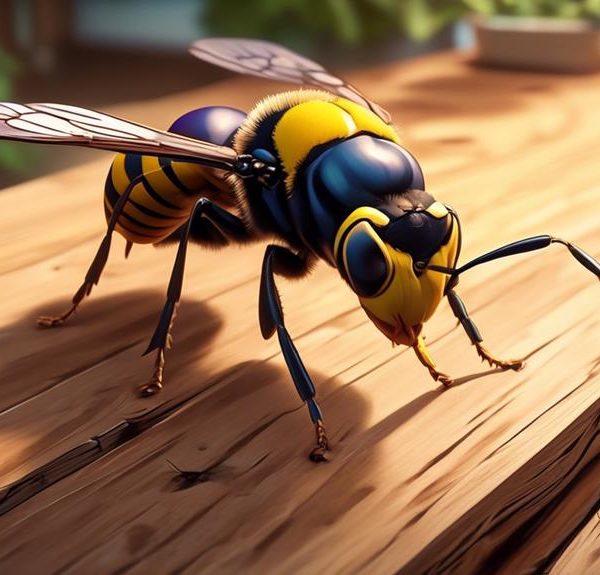Uncover the surprising truth about mason bee stings and learn how their behavior might change your perception of these industrious insects.

Do Mason Bees Sting You?
Ever wonder if you're in danger of being stung when a mason bee buzzes near you? It's a common concern, especially considering the painful reputation of their more aggressive cousins like the honey bee or the wasp.
In fact, you're more likely to experience a mason bee sting if you're disturbing their nest or handling them roughly. However, before you start avoiding every bee you see, it's important to know the facts.
The truth about mason bee stings might surprise you and change your perspective on these industrious insects, inviting you to explore further.
Key Takeaways
- Mason bees are generally docile and only sting when threatened or handled roughly.
- Their sting is rarely used as their primary defense mechanism.
- Mason bees can sting multiple times without losing their stinger.
- To protect yourself from bee stings, it is important to wear light-colored, smooth-finished clothing, avoid using heavy perfumes or colognes, move calmly and slowly around bees, avoid drinking sweet beverages outdoors, and regularly inspect your garden for bee nests.
Understanding Mason Bees
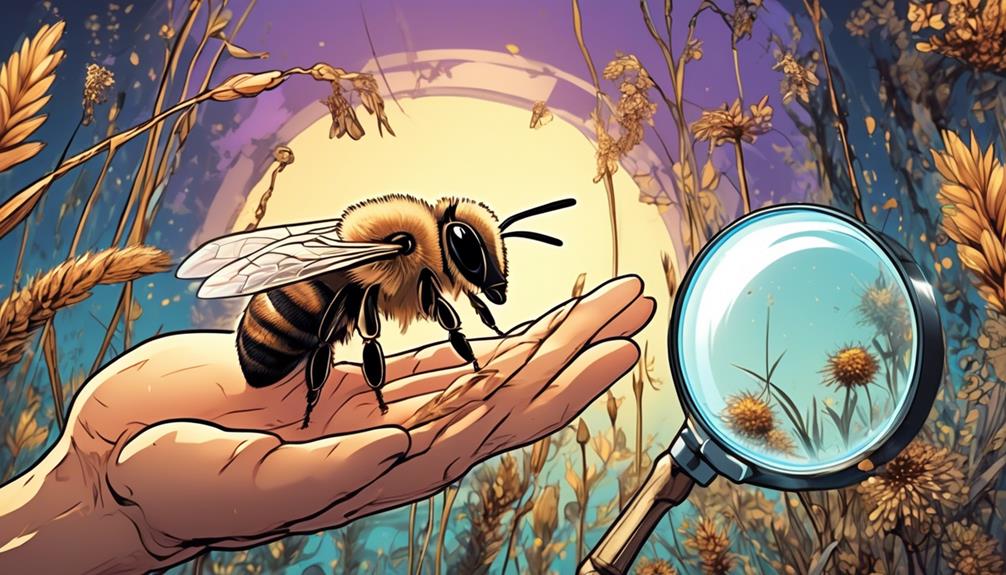
To truly comprehend the world of Mason bees, you'll need to delve into their unique characteristics, behavior, and role within our ecosystem.
Unlike honeybees, Mason bees are solitary creatures, meaning they don't live in hives or colonies. Instead, they reside in small nests often housed within cracks and crevices of rocks or trees. You'll often spot them in the early spring, busily pollinating flowers while they collect nectar and pollen.
Mason bees are known for their exceptional work ethic, and they're considered one of nature's best pollinators. In fact, it's estimated that one Mason bee can do the pollination work of 100 honeybees. That's a significant contribution to the health and diversity of our ecosystem.
But what about their sting? Well, here's the good news. Mason bees are non-aggressive and their sting is usually harmless to humans, more akin to a mosquito bite than a bee sting. However, like any creature, they'll defend themselves if they feel threatened. So, while you may admire their industriousness and ecological role, it's best to respect their space and avoid disturbing their nests.
Behavior and Characteristics of Mason Bees
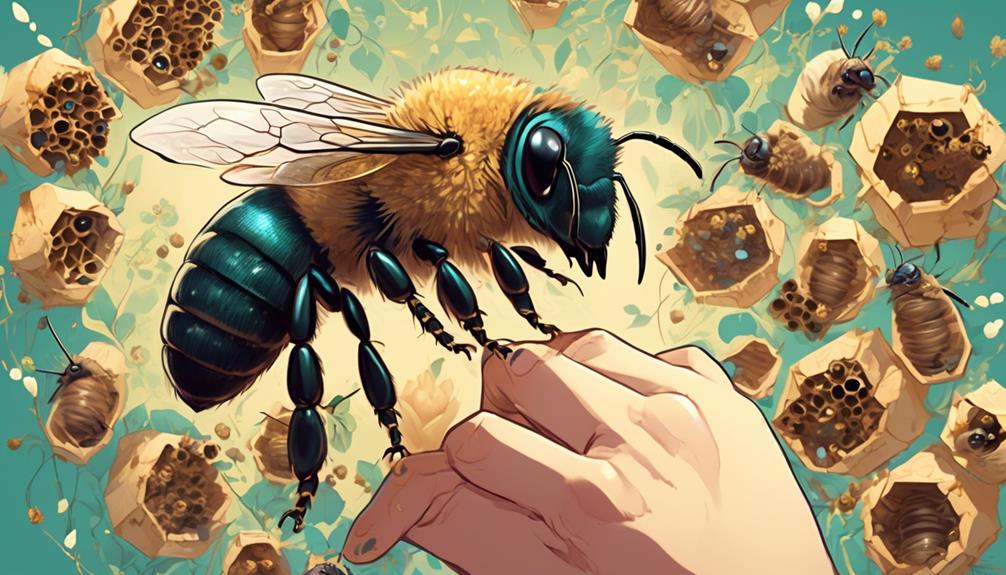
While observing Mason bees, you'll quickly notice their solitary nature and diligent work habits, two defining characteristics of this fascinating species. Unlike honeybees that live in large colonies, Mason bees are solitary creatures. Each female is a queen in her own right, building and provisioning her own nests without assistance from worker bees.
These hardworking insects are also highly efficient pollinators, more so than honeybees. They carry pollen on their abdomen, which leads to more effective cross-pollination as they move from flower to flower. In spite of their solitary nature, they don't mind living in close proximity to other Mason bees, as long as each has her own individual nesting hole.
Mason bees are non-aggressive and will only sting when threatened or handled roughly. Even then, their sting is much less painful than that of a honeybee. In fact, many people aren't even aware they've been stung by a Mason bee.
Understanding these characteristics will help you appreciate the role Mason bees play in our ecosystem. They're a testament to the diversity and complexity of bee species and an invaluable component of our natural world.
The Truth About Bee Stings
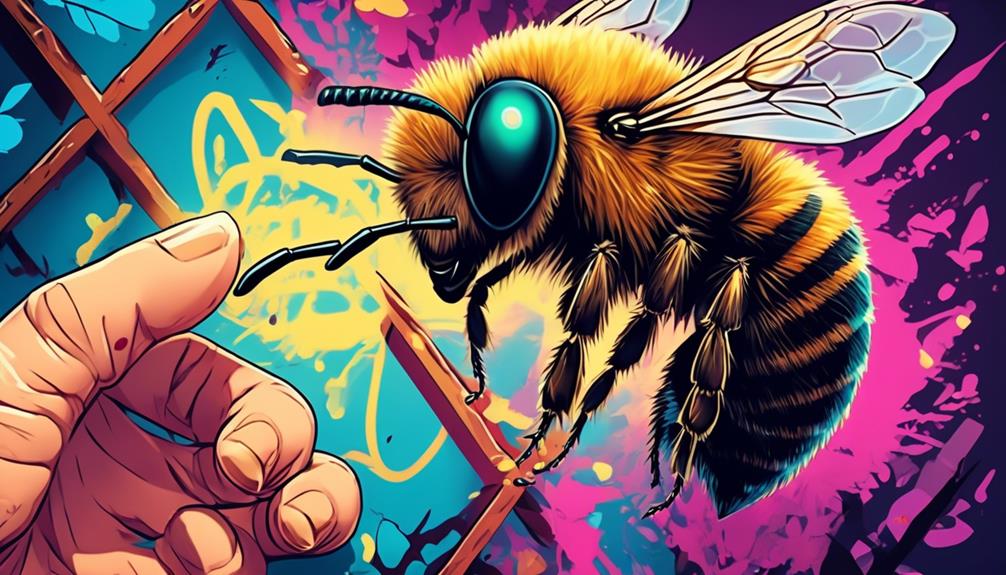
Shifting our focus from the general behavior of Mason bees, let's address a common concern surrounding all bees – their stings. Many folks are wary of bees due to the fear of a painful sting. However, the reality of bee stings varies greatly across different species.
Mason bees are generally docile insects that prefer to avoid confrontations. Their sting is rarely used as their primary defense mechanism. In fact, it's uncommon for Mason bees to sting unless they are directly threatened or accidentally squashed. Furthermore, the sting of a Mason bee is much less painful than that of a honeybee or a wasp.
To help you understand more, here's a comparison table:
Species | Sting Potency |
|---|---|
Honey Bee | High |
Wasp | Very High |
Mason Bee | Low |
Additionally, unlike honey bees, Mason bees can sting multiple times, as they do not lose their stinger. However, remember that these bees would rather go about their business and will only sting if threatened. So, don't worry too much about Mason bees. They're much more interested in pollinating plants than causing you discomfort.
Mason Bees and Human Interactions
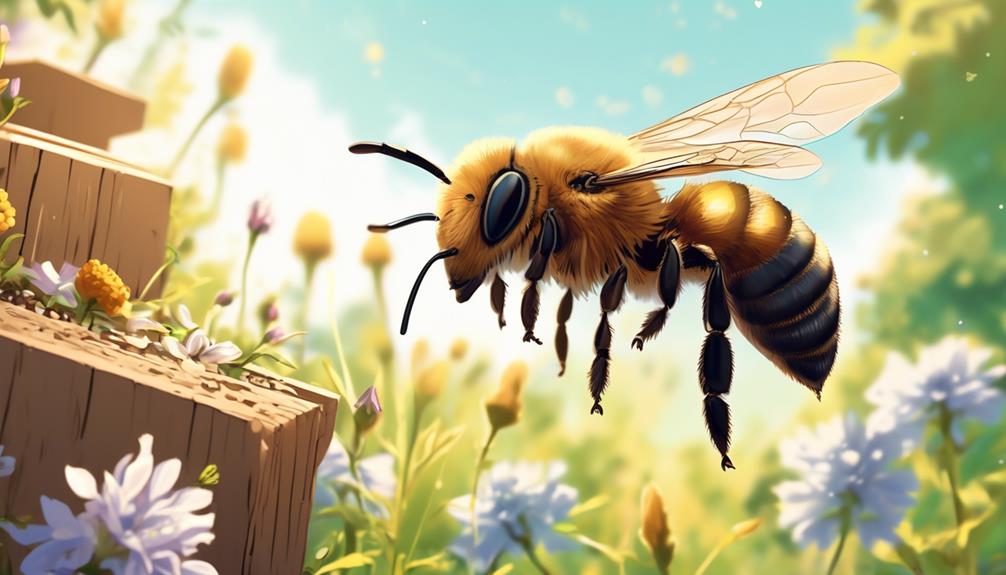
In the realm of human and insect interactions, you'll find that Mason bees exhibit a remarkably benign disposition, making them ideal pollinators for your garden or orchard. Unlike their honeybee cousins, they're solitary creatures, meaning they don't have hives to defend aggressively. Therefore, they're less likely to sting unless they're directly provoked or endangered.
You'll also find that their interactions with humans are primarily beneficial. They're industrious pollinators, contributing to the healthy growth of fruits, vegetables, and flowers in your garden. In fact, Mason bees are known to be more efficient pollinators than honeybees, due to their unique pollen-carrying technique.
Even with these positive interactions, it's important to remember that Mason bees, like any other insects, should be handled with care. If you're looking to host them in your garden, it's advisable to provide suitable nesting locations such as reeds or bee houses. They prefer locations with morning sun exposure, away from wind and predators.
Protecting Yourself From Bee Stings
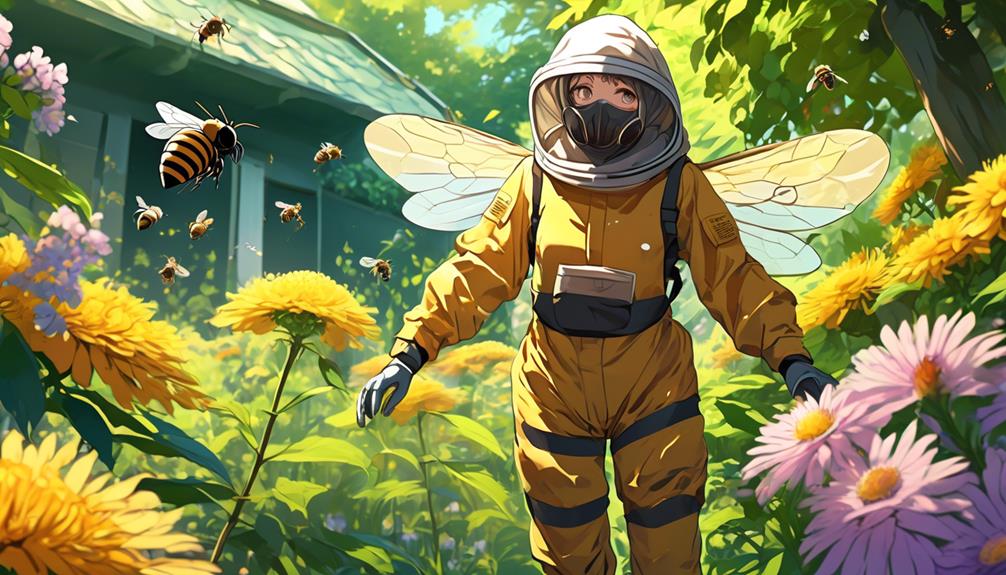
Despite Mason bees' generally docile nature, it's crucial to know how to protect yourself from potential stings, especially if you're planning to encourage their presence in your garden. Even though they're less aggressive than other bee species, Mason bees can still sting if they feel threatened or cornered.
Here are some steps you can take to minimize your risk:
Precaution | Description |
|---|---|
Wear proper clothing | Light-colored, smooth-finished clothing can reduce bee attraction. |
Use fragrance cautiously | Bees are attracted to strong scents. Avoid wearing heavy perfumes or colognes. |
Move calmly and slowly | Quick movements can provoke bees. It's best to move slowly around them. |
Avoid drinking sweet beverages outdoors | Bees are attracted to sugary substances. Keep your drinks covered. |
Regularly check for nests | Regularly inspect your garden for bee nests. If found, contact a professional for safe removal. |
Conclusion
In a nutshell, you've little to fear from mason bees. They're docile by nature and rarely sting unless severely provoked. Plus, their stingers are weak, so even if they did sting, it wouldn't hurt much.
Your interactions with these bees should be respectful and non-threatening, and you'll likely never experience a sting. So, while it's wise to protect yourself, don't let the fear of a sting keep you from appreciating these beneficial pollinators.

